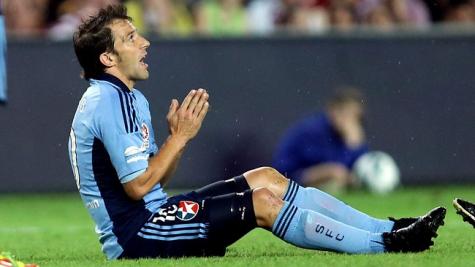Public health authorities and the parents of young men tragically killed by others as a result of unprovoked one-punch street violence yesterday welcomed the NSW Premier's announcement of a raft of measures aimed at reducing violence. The measures include tougher mandatory sentencing laws for alcohol-fuelled violence.
But some experts, including the former NSW Director of Public Prosecutions Nicholas Cowdery SC, say this will not be enough to deter would-be assailants as they don't think about the consequences of their actions beforehand.
It also doesn't address the cause of the problem.
According to Professor Kerry Carrington, Head of the School of Justice in the Law Faculty of QUT, it is the need to prove ‘masculine worth’ to other men which is at the heart of the 'coward punch'.
Professor Carrington, whose research on masculinity, violence and alcohol is recognised internationally, also says a lack of positive male role models is a key contributor to random violence by young men aged 18-25 years.
“Most young men don't go out and punch someone they don't know, even if they have been drinking, because they are civilised - they have learnt to engage in society civilly," Professor Carrington said. "They have learnt from men who use their wit, skill, intelligence and reason to articulate their place in the world.
"But the young men who commit these acts of totally irrational, unprovoked violence know no other way to express their masculinity when they feel contested or engaged in rivalry. Men who feel less powerful are more likely to express themselves through aggression.”
Professor Carrington said these young men tend to feel that all other men are rivals.
"They lack self-control and emotional maturity so they seek to demonstrate their masculine credentials.
"Alcohol disinhibits the restraint they might normally have. That's why a lot of male-on-male violence occurs around pubs and licensed venues, but alcohol is not the cause.”
She says the presence of women can be a civilising influence.
"When there is a gender balance in a gathering there is less violence, but when there are fewer women rivalry becomes more intense."
Professor Carrington said an underlying factor contributing to random male violence was partly cultural.
"Young men are egged on by violent images that are celebrated. In the games world 'king hits' and 'kills' are endorsed in unreal situations. The link between online and screen violence and actual violence is contentious but it does normalise violence and possibly desensitise us to it.
"Rebranding the single punch a 'coward punch' is a small but significant step in removing the 'gloss' associated with the term."
She said the most important role model for a male was the father figure.
"If the father is violent it can become an intergenerational cycle. It's very hard to break the cycle but it can be broken if a person can come to see that it is not normal," Professor Carrington said.
"They have to learn other ways to demonstrate their credentials and use other resources to express themselves.”
"As a society we need to celebrate positive male role models.”
Professor Carrington believe that’s why sporting bodies are so “heavy-handed” with transgressors if they muck up in their private life.
“That shift has been very important because using sporting heroes as role models for males is a good thing."
However, not all sports use their position in society to help promote the right messages.
One example, said a corporate affairs spokesperson for an international sports agency, is Alessandro Del Piero (main picture).
"He is the most credentialled international sportsman on a global scale currently playing sport regularly in Australia. He is a reallly good example of a positive male role model. He has achieved at the highest levels of sport, he has won the World Cup in the biggest sport in the world, he played 19 years for the same team in Italy - thus showing loyalty - he is married with three young children and does work for charities including cancer research, cord blood and education.
"He has been in Australia for two years and has been totally under-utilised for the benefit of the community."








 Agree (0)
Agree (0) Disagree (
Disagree (











__small.png)










